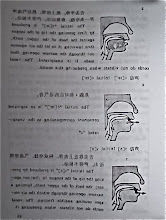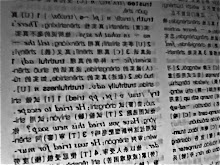Our next etymology takes us to the politics of ownership. The word peculiar bears, well,—and please do pardon my obvious pun—a rather peculiar origin.
The core of peculiar is the Latin pecū, an old noun meaning "flock" or "herd" in its seldom used singular. In its in most often used plural, pecua, it signifies "farm animals," "sheep," "pastures," and, most importantly, "cattle." The emphasis is clearly on the plurality, the collective, the "more-than-one-ness."
Pecū originates from the Proto-Indo-European *peku-, a mere orthographic skip away and meaning the same.
As any basic lesson in history will reveal, cattle, and more broadly, livestock, became at certain point in (geographic regions suited to grazing) civilization private property. And therefore became, part and parcel, a measure, means, and material of wealth. This, too, must have existed in the ancient Roman's worldview, as we see a family of derivatives birthed from the root. Pecūnia is "money," "property"; pecūniārius is the adjective, from which we get pecuniary. Then there is the rather obscure verb, in my opinion, pecūliāre, or "to supply with private property." Pecūlator is a fun form meaning "embezzler." Finally, among other variations, we have the adjective pecūliāris, denoting "one's own," "as one's own private property," and, secondarily, "exceptional" and "singular."
Before a few brief meditations, I'd like to note that the nouns cattle, flock, et alia assume two other forms in Latin, differentiated only by their inflections, their endings. The first is pecus, a later, more regularized third declension noun (neuter) meaning essentially the same as pecū. (The difference, in case you do not know, is all in the stress of the u.) The second is pecudis, another third declension noun (feminine), signifying a "single head of cattle," "sheep," or any kind of beast, in contrast to the fauna of sky or sea. Here, I will highlight that we don't see variations on pecudis, as in pecudiārius, in Latin. In fact, we don't see any (that I have found) adjectives modifying a cow in the singular at all. This further emphasizes to me that the consciousness and conception of this bovine in Latin, and even in English, is entirely about the collective, the plural, the herd.
But I find this notion of the collective ironic in that the derivatives of pecū relate very much to the individual. It is no big leap from a sense of "one's own" to "singular." Yet even here the connotation of singular as "unusual" and peculiar as "strange" or "odd" doesn't come until a few centuries after the Middle Ages. (I'd like to know exactly when and how, but that is outside the scope of this current entry.) Whatever the case, there underlies the evolution of the word the connection between that which one owns and that which distinguishes oneself. This idea, of course, is far from foreign in the modern capitalistic imagination. Our status is largely marked by our property. And our individuality is marked by our personality, or what is peculiar to us. Interestingly, only the "peculiar to" construction retains the sense of "one's own," while the construction "x is peculiar" holds the more qualitative connotation.
A few questions arise. Are there differences that emerge in the use and form of *peku- between nomadic and agrarian Indo-European peoples? And if so, what are the different ideas of property therein?
And more specifically, what was the context and politics of the first use of peculiar after the Middle Ages? Was there any kind of challenge to the hegemony of the day?
These questions, of course, are largely unanswerable, but even their contemplation can open up fascinating thoughts about man, his world, and his ideas all through the seemingly innocuous word peculiar.
Thanks to my handy-dandy Amsco Latin Dictionary (Second Edition) and the ever accessible and fabulous etymonline.com for some help in the specifics.



No comments:
Post a Comment